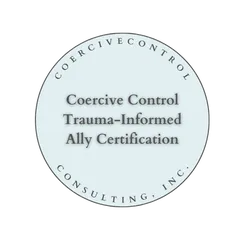Quick Contact
Please fill out the form below and our attorney will contact you.
Office Locations
Testimonials
Ratings & Reviews

- posted: Apr. 06, 2021
1. Mediation puts children first.
Mediation takes a child-centered approach. Nobody knows your children better than you, so why wouldn’t you and your spouse be the ones to make the important decisions that will affect your children? Mediation is a facilitative process which assists the parents in creating their coparenting plan.
2. Mediation is more peaceful.
Divorce isn’t fun, but it doesn’t have to be a fight. Conflict is inevitable, but combat is optional. Trained mediators can help couples keep the peace by focusing on the future and not the past.
3. Mediation takes less time.
Mediation gives the parties involved control over the timeline of their divorce, not the Court. Mediation sessions can occur on a weekly, bi-weekly, or even monthly basis. You have the power to control the timeline. This flexible approach better suits the needs of both spouses. When everyone has the time he or she needs without pressure or time constraints, decisions can be made with more clarity.
4. Mediation is more cost-effective.
The average litigated divorce in the United States can cost upwards of $25,000, in fact most litigators in Fairfield County, CT charge this as an initial retainer. For each spouse. (Lindsay, the $15,000 is ridiculously low for CT, I wouldn’t use this figure and my IG has the rate of $25,000). It is very unlikely that mediation would cost nearly that much. Wouldn’t you rather preserve your family finances and create a better future for your children?
5. Mediation is empowering.
When spouses agree to mediate, they retain the power to make decisions. Trained mediations ensure that the participants have all the information they need to be well thought out decisions. Mediation allows you and your spouse to explore all the options and find the resolutions that will best serve you both and most importantly, your children.
6. Mediated agreements have higher compliance rates.
Divorces resolved with mediation have higher compliance rates than those resolved through litigation because you and your spouse made the decisions, not lawyers and not judges. Aren’t you more likely to comply with decisions you made than those imposed on you? Maintaining the ability to make your own decisions assures you and your spouse will “own” the agreement and therefore, comply with it.
7. Mediation results in more thorough agreements.
A trained mediator has the goal of guiding both parties to make informed, educated decisions. With that goal in mind, the provisions of an agreement are reviewed in great detail, with revisions being made until both parties are satisfied. The assistance of review counsel also assures that all provisions will be drafted well. The mediation process ensures a thorough, well drafted final agreement.
8. Mediation is a more personalized process.
In mediation, you and your spouse determine the timeline and tailor your agreement to your family’s unique circumstances.
9. Mediation is more convenient and flexible.
When the Court is in control, the divorcing spouses are not. Court dates, subpoenas, depositions are all scheduled with little attention to your work or personal obligations. Mediation sessions occur when it’s convenient for both spouses. Online mediation is common, and many people appreciate the additional flexibility that provides.
10. Mediation is private and confidential.
Courtrooms are public; even in this virtual world, court hearings are still open to the public. Mediation is private.
Mediation is a non-adversarial divorce process that allows spouses to create the blueprint for their post-divorce life in a less costly and less contentious setting. When spouses have come to the difficult conclusion that their marriage is over, they can still decide to have a “good divorce,” can focus on the best interests of the children and can treat each other with compassion and respect; after all what started in love can and should end with respect.












